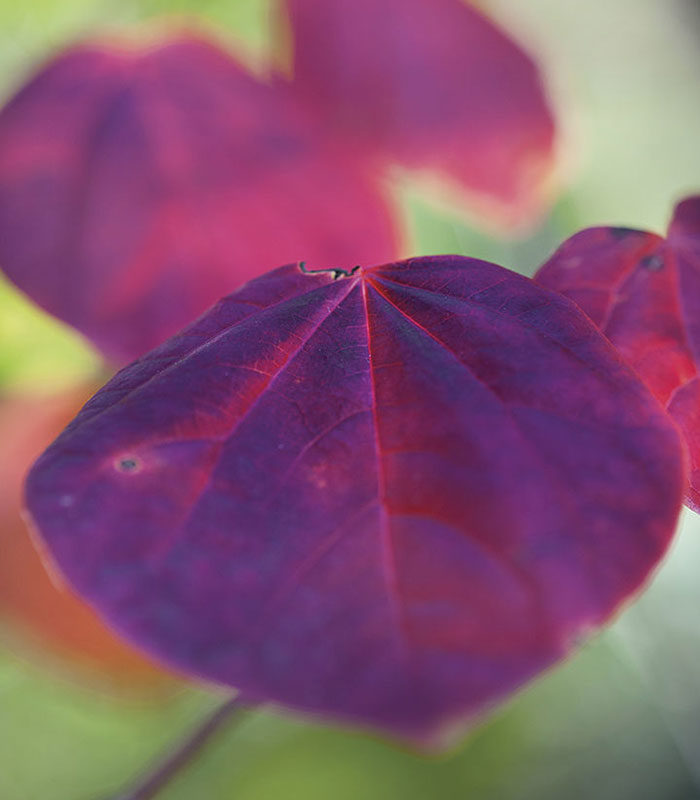
After months of bitter cold temperatures, snow, freezing rain, and every other miserable element nature throws at us, gardeners are eager to visit their favorite garden centers and nurseries. There we are greeted with an abundance of flowering plants, which inevitably grab our attention and end up in our wagons. Neighboring plants that won’t shine until autumn are quickly skipped over in favor of more eye-catching seasonal options.
As a result, our gardens tend to be very heavy with plants having spring and summer interest but little pizzazz in fall. As the heat of summer passes and the days get shorter, the garden looks tired and blah. But so many plants keep their “best for last” hidden for months until finally revealing unexpected beauty as the first frosts wither surrounding companions. The following is a collection of wonderful plants you may not be familiar with but that will make your garden as spectacular in fall as it is in spring and summer. These plants are reliable, are easy to grow, and demand little attention and effort on the part of gardeners.
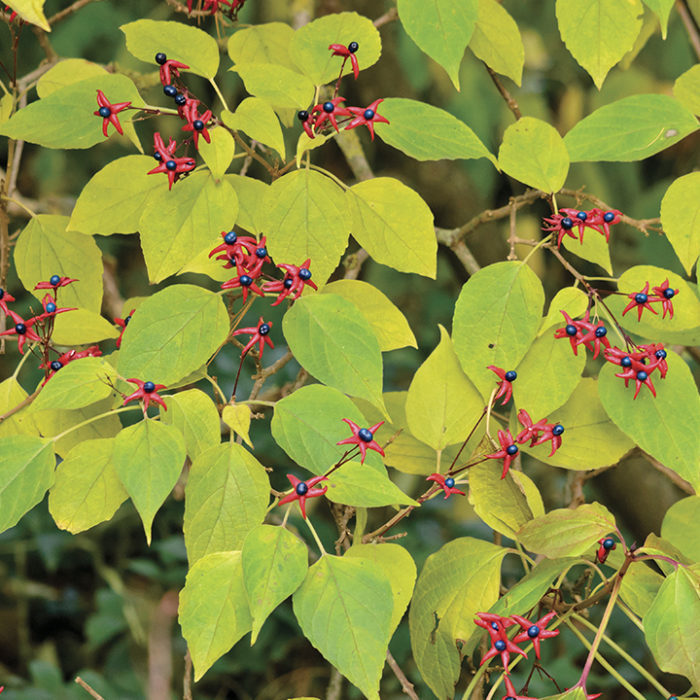
This shrub looks tropical, but it likes things a bit cooler
Name: Harlequin glorybower (Clerodendrum trichotomum var. fargesii)
Zones: 6–9
Size: 10 to 15 feet tall and wide
Conditions: Full sun to partial shade; moist, well-drained soil
Harlequin glorybower epitomizes the perfect plant for the fall garden. Its sweetly fragrant white flowers perfume the dog days of summer and are then replaced by striking, waxy, ruby-red, star-shaped calyxes. These eventually open and reveal a metallic blue, pea-size fruit. This striking display has few rivals in fall. The plant does require room to reach its full potential. Because of its suckering nature, don’t plant it too close to less robust companions. Harlequin glorybower prefers moist soils rich in organic matter but will remain content in drier, average garden soils, too. Drier conditions may reduce the plant’s overall dimensions, increasing the number of spots it can reside in the landscape. The heart-shaped, deer-resistant leaves are matte green, and some say they smell like peanut butter when bruised.
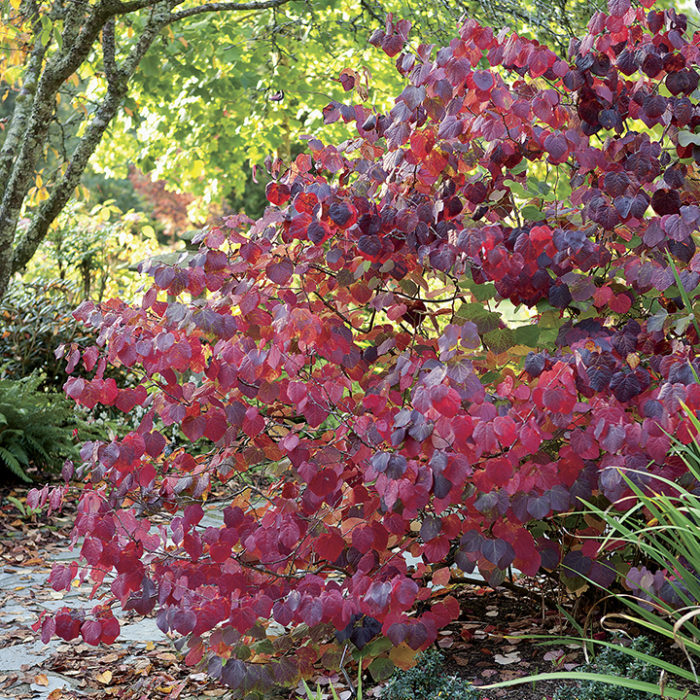
Expect colorful foliage followed by fall flowers
Name: Disanthus (Disanthus cercidifolius)
Zones: 5–8
Size: 6 to 10 feet tall and wide
Conditions: Partial shade; acidic, moist, well-drained soil
Witch hazels (Hamamelis spp. and cvs., Zones 3–9) are arguably among the most coveted plants at the nursery. This popularity is certainly due to their colorful fall or late-winter flowers as well as their autumn foliage display. A relatively obscure witch hazel relative, however, deserves more notoriety for its dramatic foliage display in early to midfall. The blue-green, heart-shaped foliage of disanthus turns a kaleidoscope of colors, including shades of red, orange, and purple. Once the leaves drop, close inspection of the bare branches reveal tiny, spiderlike, reddish-purple flowers. Plants mature into open, multistemmed shrubs but can be trained into single-stem specimens. Disanthus is perfectly suited for growing alongside other woodland dwellers such as fothergilla (Fothergilla spp. and cvs., Zones 4–8), ferns, and epimedium (Epimedium spp. and cvs., Zones 4–9).
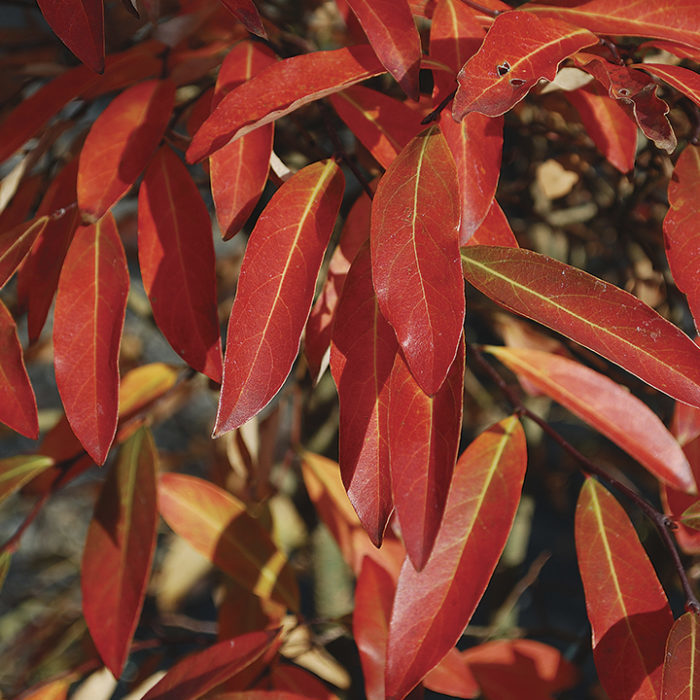
Early autumn fruit gives way to fiery, scented leaves
Name: Asian spicebush (Lindera angustifolia)
Zones: 6–8
Size: 6 to 9 feet tall and wide
Conditions: Full sun to partial shade; moist, well-drained soil
Another shrub that deserves high accolades for its colorful contribution is Asian spicebush. Exceptionally lustrous, green linear leaves are backed by contrasting silvery undersides and remain unscathed throughout the growing season. The common name refers to the spicy aroma that is noticeable when parts of the plant are crushed. As temperatures cool, the leaves become fiery shades of red and orange, literally becoming a glowing beacon in the garden. As the mercury continues to drop, the foliage color transforms to warm tans and browns, and the leaves persist well into winter, much like the leaves of a beech (Fagus spp. and cvs., Zones 4–8). Not only do these leaves provide visual interest, but they also provide the element of sound to the garden, as the slightest breeze produces a soothing rustle on a crisp autumn day. The fall foliage colors will become brighter and pigments more saturated when the leaves are exposed to more sun. Most leaves have fallen by the time tiny greenish flowers open in early spring, which give way to shiny black fruit in early fall.
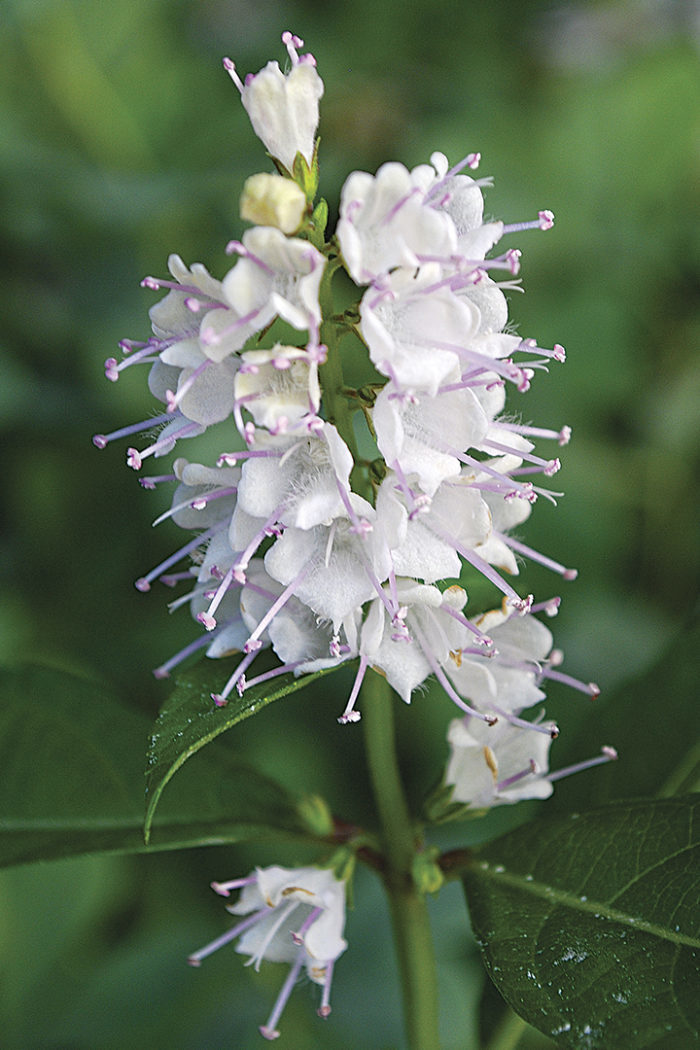
A textural gem with beautiful blossoms
Name: Japanese keiskeia (Keiskeia japonica var. hondoensis)
Zones: 5–8
Size: 2 to 3 feet tall and wide
Conditions: Partial shade; moist, well-drained soil
There are numerous fall perennials out there that nearly every gardener is familiar with. However, there are less well-known options that deserve attention. Japanese keiskeia is one. It is an underutilized plant that forms refined clumps of tall stems cloaked in green leaves. In early fall, 3-inch, bottlebrush-like clusters of white to blush-pink flowers top each stem. This plant is perfectly happy to receive morning sunshine as long as the soil is consistently moist and rich in organic matter. Combine it with plants such as European ginger (Asarum europaeum, Zones 4–8), fringed bleeding heart (Dicentra eximia, Zones 3–9), and Japanese forest grass (Hakonechloa macra and cvs., Zones 4–9) to create a textural tapestry.
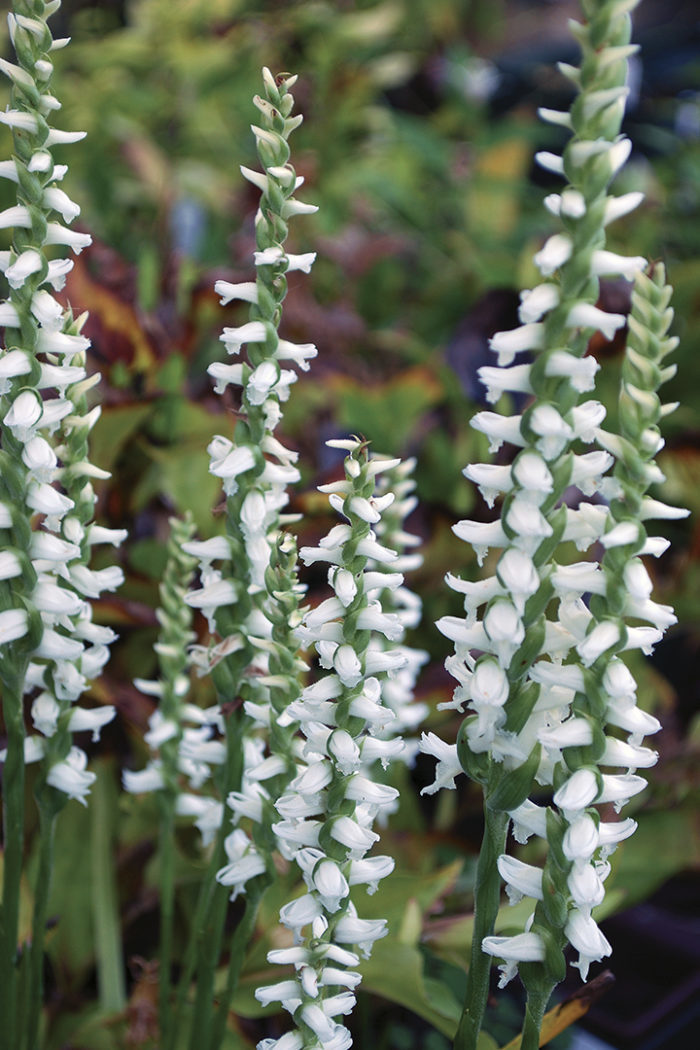
An orchid that tolerates cold and wet
Name: Nodding ladies tresses (Spiranthes cernua var. odorata)
Zones: 3–9
Size: 12 to 15 inches tall and wide
Conditions: Full sun to partial shade; moist soil
Nodding ladies tresses is a diminutive, native terrestrial orchid that grows best in moist, boggy soils and full sun. Its rosettes of dark green leaves spread slowly via rhizomes over time. Starting in early fall, miniature white, sweetly fragrant flowers open as they ascend the tall flower stems in a unique spiral arrangement. This is an undemanding, easy-to-grow plant that even the novice gardener will have success with. Grow it alongside other plants that prefer wet feet, such as cardinal flower (Lobelia cardinalis, Zones 3–9).
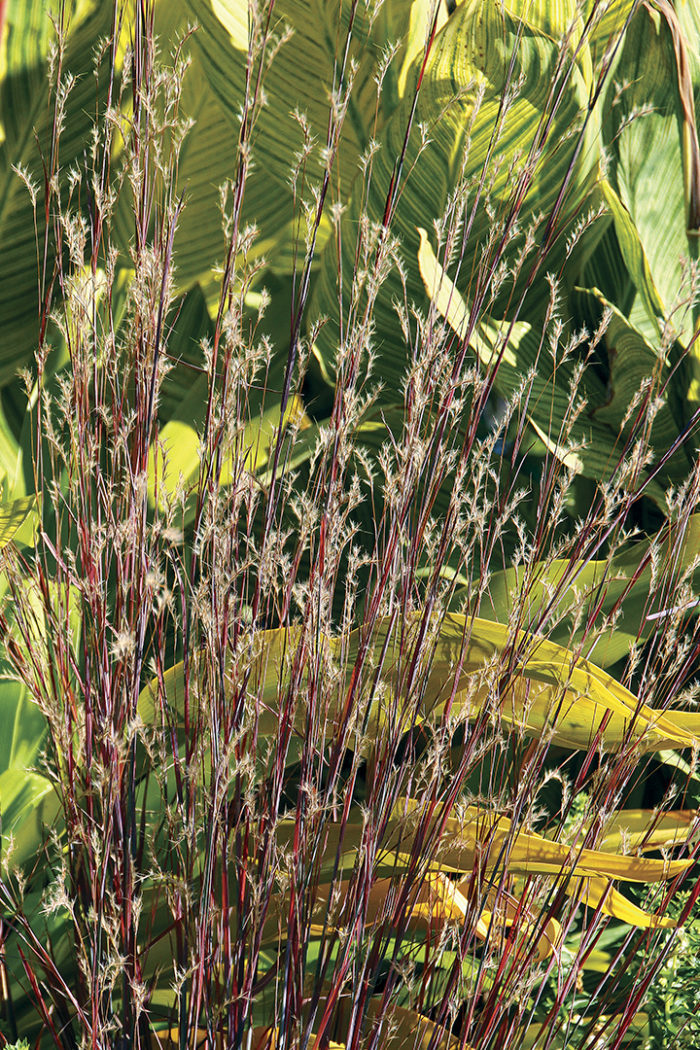
In rain, snow, or wind, this grass won’t flop
Name: ‘Standing Ovation’ little bluestem (Schizachyrium scoparium ‘Standing Ovation’)
Zones: 3–8
Size: 2 to 3 feet tall and 12 to 18 inches wide
Conditions: Full sun; well-drained soil
Grasses have long been considered a desirable addition to the fall landscape, providing seed heads that play with the late-season sunlight and leaf blades that move gracefully in the wind. ‘Standing Ovation’ little bluestem is a durable, upright, ornamental native grass commonly found in meadows and dry, open woodlands. While tolerant of a range of soil types, it grows best in average soils that are on the dry side. Handsome clumps of tall blue-green leaves tinged with purple stand tall in the face of harsh winds and rain, proudly displaying silvery seed heads that glisten when backlit by late afternoon sun. Midfall’s colder temperatures seem to set this grass ablaze as the leaves transition to shades of red, purple, and orange. ‘Standing Ovation’ adds an eye-catching vertical accent to any sunny border. It is also an excellent choice for mass plantings, creating drifts of colorful motion throughout the year, and it can be especially useful in harsh sites like traffic circles. For that feat, this up-and-coming star deserves a big round of applause.
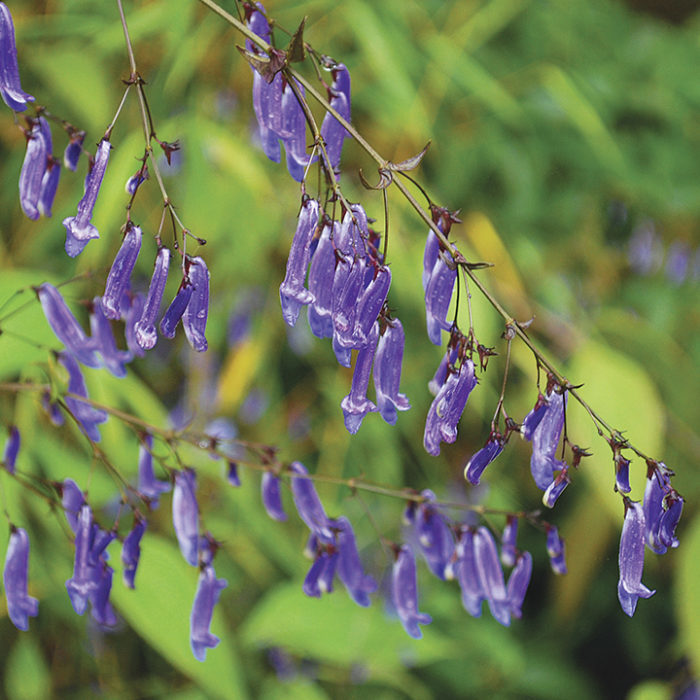
An otherworldly color—for any time of year
Name: Trumpet spurflower (Plectranthus effusus var. longitubus)
Zones: 6–8
Size: 2 to 3 feet tall and 4 feet wide
Conditions: Partial shade; moist, well-drained soil
Another up-and-coming star, but only in the shade garden, is trumpet spurflower. Preferring rich, woodsy soil with even moisture, this Japanese native remains behind the scenes throughout spring and summer, blending in with its woodland neighbors. In mid to late fall, a star is born and takes center stage as 24- to 30-inch arching stems burst forth with airy panicles. Each holds clouds of small, purple, tubular flowers. These colorful flowers steal the show in fall but willingly share the spotlight with classic fall bloomers such as anemones (Anemone hybrida and cvs., Zones 4–8) and toadlilies (Tricyrtis spp. and cvs., Zones 4–8). A graceful beauty, the trumpet spurflower tends to be sensitive to early frosts, so a protective cover on chilly autumn nights ensures continued enjoyment.
Fall Enhancement Tips
There are several things you can do to your existing garden plants that will help them shine in fall.
Provide a good haircut
In late winter or early spring, radically prune fast-growing shrubs such as willows (Salix spp. and cvs., Zones 3–9) and shrub dogwoods (Cornus spp. and cvs., Zones 3–9) close to the ground. This technique, known as coppicing, will rejuvenate shrubs and result in vibrant stem colors in fall.
Don’t always deadhead
Don’t be hasty to cut down perennials after a killing frost. Many have subtly beautiful seed heads decked out in earthy shades of brown, which can add color and texture to the garden.
Plant some fall ephemerals
Consider incorporating perennials that go dormant in summer only to reappear in fall with colorful flowers or foliage. A favorite that won’t disappoint is autumn crocus (Colchicum autumnale, Zones 4–8), whose lavender-pink flowers are a pleasant, unexpected surprise.
Andrew Brand is the former president of the Connecticut Nursery and Landscape Association and has worked at Broken Arrow Nursery in Hamden for over two decades, where he now manages the nursery.
Photos, except where noted: courtesy of Andrew Brand
Sources
Broken Arrow Nursery, Hamden, CT; 203-288-1026; brokenarrownursery.com
Digging Dog Nursery, Albion, CA; 707-937-1130; diggingdog.com
Plant Delights Nursery, Raleigh, NC; 919-772-4794; plantdelights.com
Rare Find Nursery, Jackson, NJ; 732-833-0613; rarefindnursery.com
Fine Gardening Recommended Products

Ashman Garden Cultivator (1Pack)
Fine Gardening receives a commission for items purchased through links on this site, including Amazon Associates and other affiliate advertising programs.
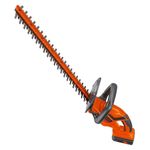
Black and Decker 22-inch Cordless Hedge Trimmer
Fine Gardening receives a commission for items purchased through links on this site, including Amazon Associates and other affiliate advertising programs.
- 38 x 7 x 7 inches
- 6.9 pounds
- 1 Lithium Ion battery required (included)
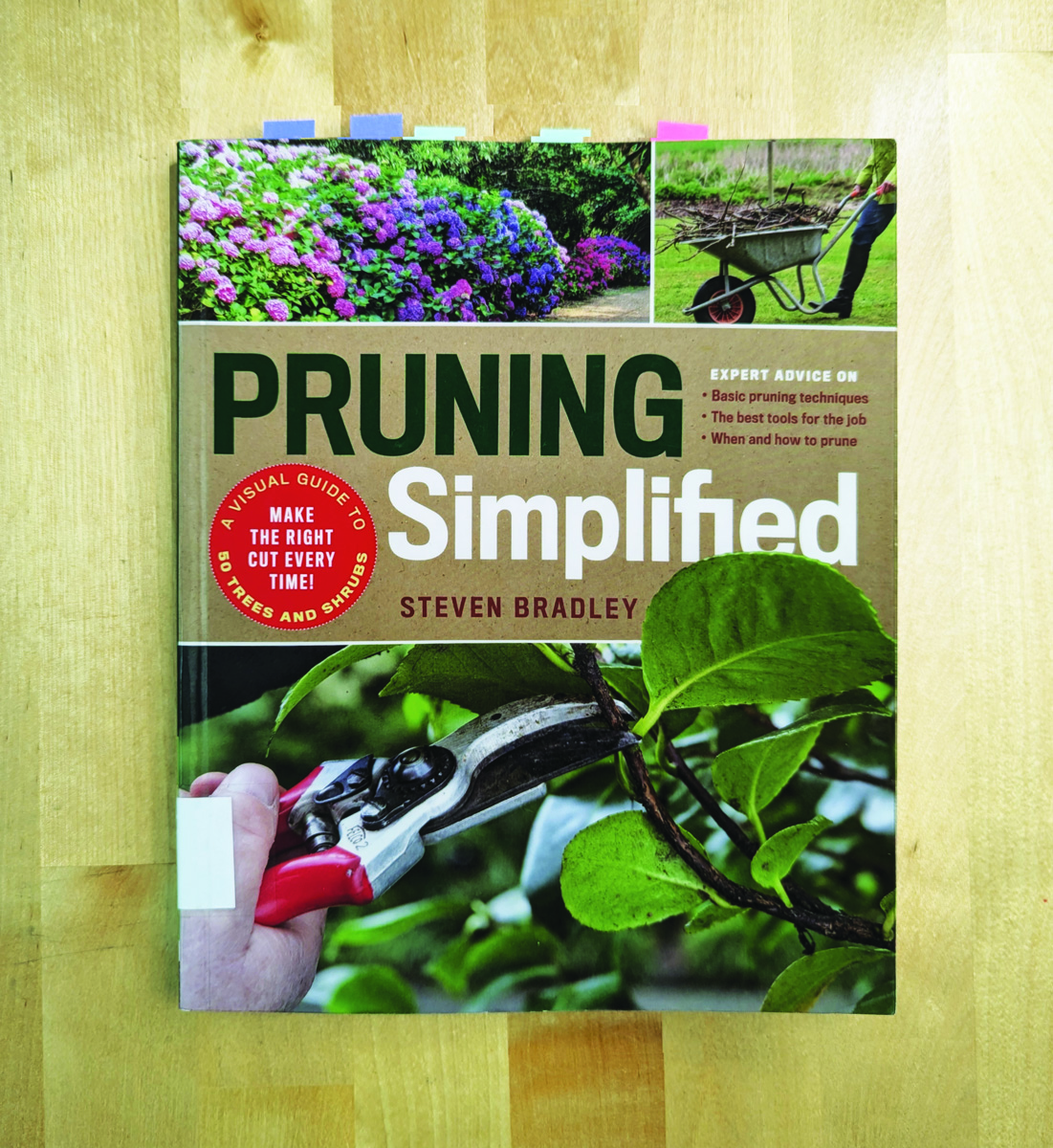
Pruning Simplified: A Step-by-Step Guide to 50 Popular Trees and Shrubs
Fine Gardening receives a commission for items purchased through links on this site, including Amazon Associates and other affiliate advertising programs.


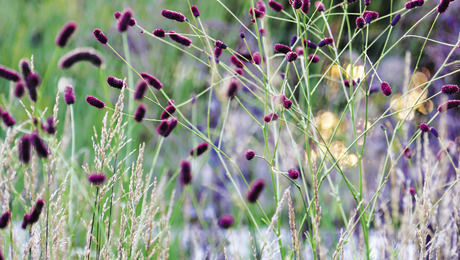
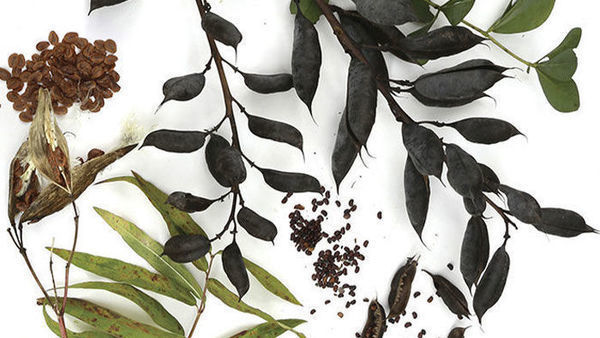



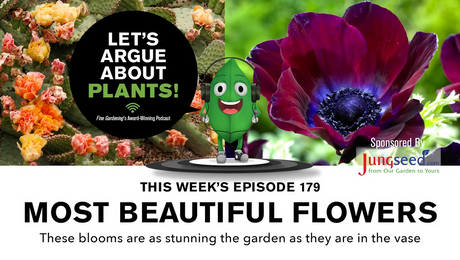










Comments
Log in or create an account to post a comment.
Sign up Log in